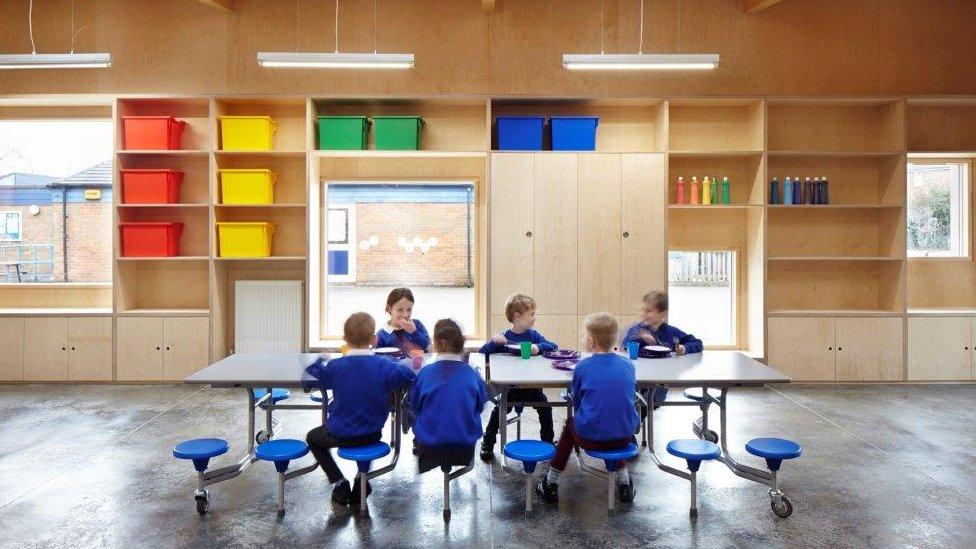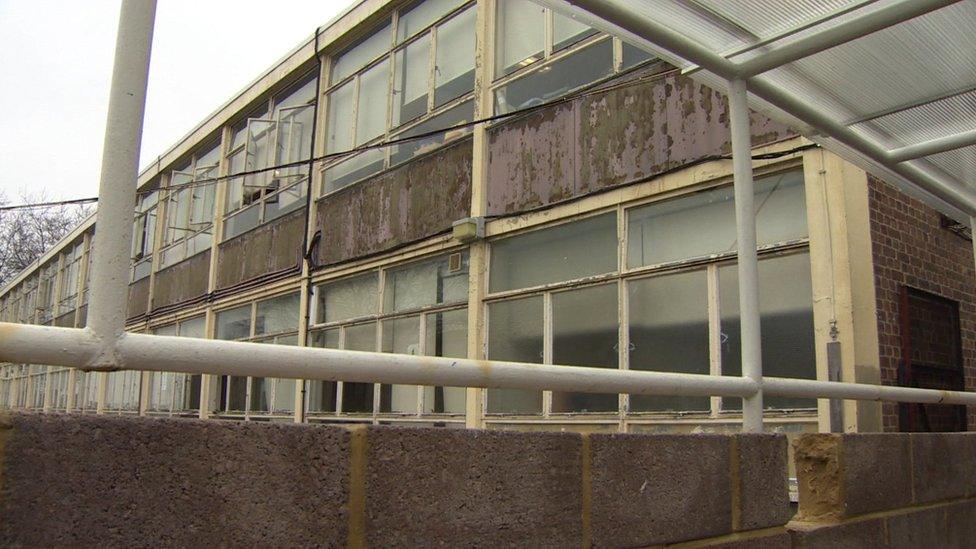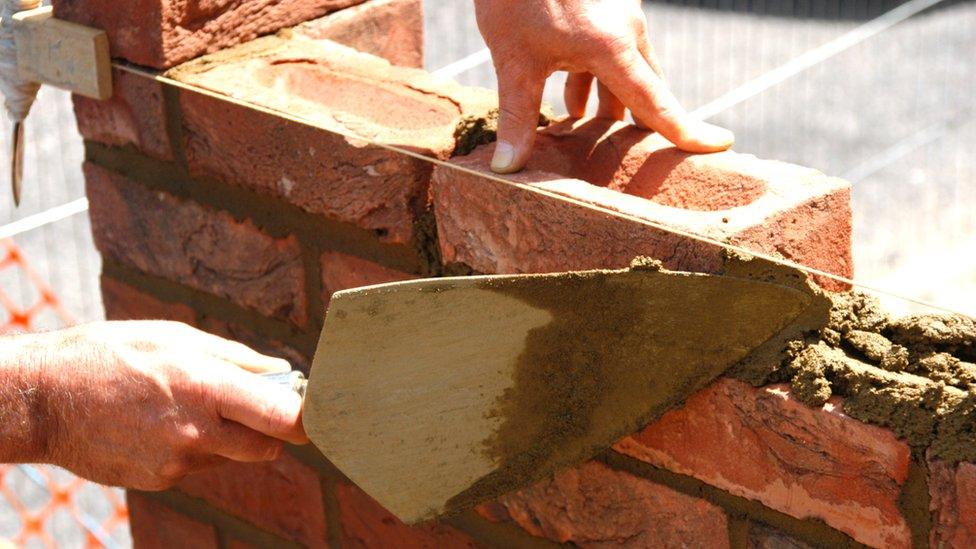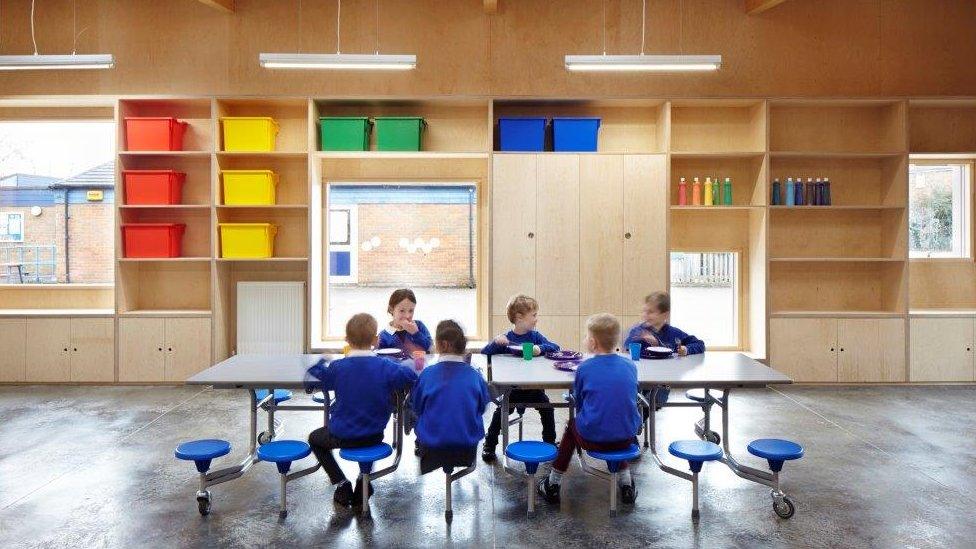'More spent on free schools as older buildings deteriorate'
- Published
- comments

The government has provided almost 600,000 new school places in five years
The government has pledged billions for new free schools while existing school buildings in England are deteriorating, says the official spending watchdog.
Repairing all school buildings to a satisfactory standard will cost an estimated £6.7bn, according to a National Audit Office report.
Under government plans 833 free schools will open by 2021, costing £9.7bn.
The government said free schools were a vital part of meeting demand for new school places.
'Taxpayers' money'
But shadow education secretary Angela Rayner said the policy continued "to waste millions opening free schools in areas that do not need them".
And Meg Hillier, chairwoman of the Commons Public Accounts Committee, said it was "taxpayers' money that could be used to fund much-needed improvements in thousands of existing school buildings".

This school building was replaced thanks to government funding but the report says too many are still of poor quality
Deteriorating school buildings are a "significant risk to long-term value for money", the report found.
Much of the school estate is more than 40 years old with 60% built before 1976 and the cost of repairs is expected to rise, with common defects including electrics and external walls.
Meanwhile, demographic changes mean the Department for Education will need to provide 420,000 more school places by 2021, researchers found.
Under government plans, about 270,000 of these new places will be in free schools, run by independent groups but funded by central government.
The free schools programme has been "much larger, in scale and cost, than the department initially planned", said researchers, noting that:
in 2010, the government planned to open 315 free schools, costing £900m by 2015
but by 2015, it had opened 305 schools, costing £1.8bn
another £980m was allocated to the programme last year
and 500 more free schools in the pipeline will cost another £7bn.

Construction costs are similar across all types of school, says the report
Free school places cost more than those in local authority schools - 50% more for secondary places and 33% more at primary level, said the report.
Under the government's current school building programme, construction costs are about the same for all types of school.
The higher cost of free schools "is mainly because free schools tend to involve the purchase of land", with the government expecting to spend £2.5bn on land between 2016 and 2022, the researchers noted.
"This level of investment would put it in the same spending bracket as the top five homebuilders in the UK."
The report also raised concerns that while free schools play an increasingly important role in addressing school places shortages, they create spare capacity when set up in areas that already have enough places.
Unfilled places mean schools lose funding, possibly harming their financial viability, said the report.
According to the report, spare places in 52 free schools which opened in 2015 could have a moderate-to-high impact on funding in 282 other schools.
'Cost-effective'
Toby Young, director of the New Schools Network which represents free schools, said the report recognised that they were better value than previous school building programmes.
"They are the most cost-effective way to create the 750,000 new school places we need between now and 2025," he said.
The report noted that the government created 599,000 new school places in the five years to 2015 but pupil numbers continue to grow with demand shifting to secondary schools.
A Department for Education spokesman said more than three-quarters of free schools had been approved in areas where there was demand for new places and the vast majority were rated good or outstanding by Ofsted.
"The government is making a huge investment in the school estate of £23bn up to 2021, to create a further 600,000 new school places, deliver 500 new free schools, and rebuild and refurbish buildings at over 500 schools," the spokesman added.
- Published7 October 2016

- Published11 May 2016
